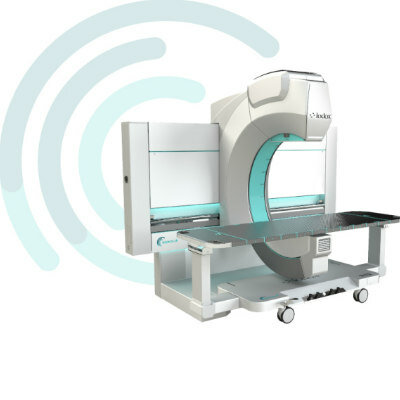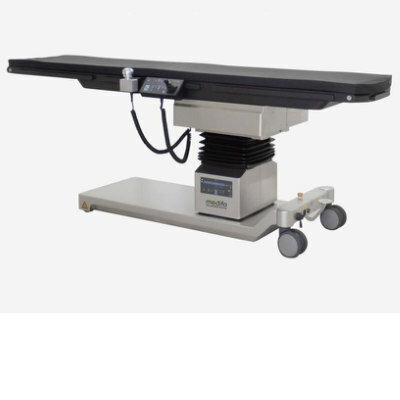Machine Learning Shows Promise for Supporting Medical Decisions
|
By MedImaging International staff writers Posted on 05 Apr 2018 |
A number of studies presented at the 67th Annual Scientific Session of the American College of Cardiology (Washington, DC, USA) demonstrated how machine learning can be used to accurately predict clinical outcomes in patients with known or potential heart problems. The findings of these studies indicate that machine learning can usher in a new era in digital health care tools capable of enhancing healthcare delivery by aiding routine processes and helping physicians to assess the patients’ risk.
Clinical scoring systems and algorithms have been used in medical practice since a long time now, although there has recently been a visible increase in the application of machine learning to improve these tools. While traditional algorithms require all calculations to be pre-programmed, machine-learning algorithms deduce the optimal set of calculations by searching for patterns in large collections of patient data. New studies presented at ACC.18, which took place on March 10-12 in Orlando, USA, demonstrated how machine learning can be used to predict outcomes such as diagnosis, death or hospital readmission; improve upon standard risk assessment tools; elucidate factors that contribute to disease progression; or to advance personalized medicine by predicting a patient’s response to treatment.
For instance, in one study, researchers used machine learning to predict which patients would eventually be diagnosed with a heart attack after visiting a hospital emergency department for chest pain. Although chest pain is among the most common complaints in patients visiting the emergency department, only a fraction of such patients are ultimately diagnosed with a heart attack. In a pilot test, the algorithm was able to accurately predict a heart attack diagnosis 94% of the time in the validation data set. Researchers also ran the validation data through a standard clinical model (the hsTnT model, which incorporates only a patient’s age, sex and high-sensitivity troponin levels), which showed an accuracy of 88%. These results suggest that machine learning can offer a substantial improvement over current decision support tools.
“In a broad sense, machine-learning methods have been around for quite some time, but it’s just in the last few years that we have gained the large data sets and computational capabilities to use them for clinical applications,” said Daniel Lindholm, MD, PhD, postdoctoral research fellow at Uppsala University in Sweden and the study’s lead author. “I think that we will see more and more decision support systems based on machine learning. But even as machine learning can enhance medical practice, I do not think these algorithms will ultimately replace physicians but, rather, provide decision support based on the data at hand. Other things, such as empathy, human judgment and the patient-doctor relationship are crucial.”
Related Links:
American College of Cardiology
Clinical scoring systems and algorithms have been used in medical practice since a long time now, although there has recently been a visible increase in the application of machine learning to improve these tools. While traditional algorithms require all calculations to be pre-programmed, machine-learning algorithms deduce the optimal set of calculations by searching for patterns in large collections of patient data. New studies presented at ACC.18, which took place on March 10-12 in Orlando, USA, demonstrated how machine learning can be used to predict outcomes such as diagnosis, death or hospital readmission; improve upon standard risk assessment tools; elucidate factors that contribute to disease progression; or to advance personalized medicine by predicting a patient’s response to treatment.
For instance, in one study, researchers used machine learning to predict which patients would eventually be diagnosed with a heart attack after visiting a hospital emergency department for chest pain. Although chest pain is among the most common complaints in patients visiting the emergency department, only a fraction of such patients are ultimately diagnosed with a heart attack. In a pilot test, the algorithm was able to accurately predict a heart attack diagnosis 94% of the time in the validation data set. Researchers also ran the validation data through a standard clinical model (the hsTnT model, which incorporates only a patient’s age, sex and high-sensitivity troponin levels), which showed an accuracy of 88%. These results suggest that machine learning can offer a substantial improvement over current decision support tools.
“In a broad sense, machine-learning methods have been around for quite some time, but it’s just in the last few years that we have gained the large data sets and computational capabilities to use them for clinical applications,” said Daniel Lindholm, MD, PhD, postdoctoral research fellow at Uppsala University in Sweden and the study’s lead author. “I think that we will see more and more decision support systems based on machine learning. But even as machine learning can enhance medical practice, I do not think these algorithms will ultimately replace physicians but, rather, provide decision support based on the data at hand. Other things, such as empathy, human judgment and the patient-doctor relationship are crucial.”
Related Links:
American College of Cardiology
Latest Imaging IT News
- New Google Cloud Medical Imaging Suite Makes Imaging Healthcare Data More Accessible
- Global AI in Medical Diagnostics Market to Be Driven by Demand for Image Recognition in Radiology
- AI-Based Mammography Triage Software Helps Dramatically Improve Interpretation Process
- Artificial Intelligence (AI) Program Accurately Predicts Lung Cancer Risk from CT Images
- Image Management Platform Streamlines Treatment Plans
- AI-Based Technology for Ultrasound Image Analysis Receives FDA Approval
- AI Technology for Detecting Breast Cancer Receives CE Mark Approval
- Digital Pathology Software Improves Workflow Efficiency
- Patient-Centric Portal Facilitates Direct Imaging Access
- New Workstation Supports Customer-Driven Imaging Workflow
Channels
Radiography
view channel
Novel Breast Imaging System Proves As Effective As Mammography
Breast cancer remains the most frequently diagnosed cancer among women. It is projected that one in eight women will be diagnosed with breast cancer during her lifetime, and one in 42 women who turn 50... Read more
AI Assistance Improves Breast-Cancer Screening by Reducing False Positives
Radiologists typically detect one case of cancer for every 200 mammograms reviewed. However, these evaluations often result in false positives, leading to unnecessary patient recalls for additional testing,... Read moreMRI
view channel
PET/MRI Improves Diagnostic Accuracy for Prostate Cancer Patients
The Prostate Imaging Reporting and Data System (PI-RADS) is a five-point scale to assess potential prostate cancer in MR images. PI-RADS category 3 which offers an unclear suggestion of clinically significant... Read more
Next Generation MR-Guided Focused Ultrasound Ushers In Future of Incisionless Neurosurgery
Essential tremor, often called familial, idiopathic, or benign tremor, leads to uncontrollable shaking that significantly affects a person’s life. When traditional medications do not alleviate symptoms,... Read more
Two-Part MRI Scan Detects Prostate Cancer More Quickly without Compromising Diagnostic Quality
Prostate cancer ranks as the most prevalent cancer among men. Over the last decade, the introduction of MRI scans has significantly transformed the diagnosis process, marking the most substantial advancement... Read moreUltrasound
view channel
Deep Learning Advances Super-Resolution Ultrasound Imaging
Ultrasound localization microscopy (ULM) is an advanced imaging technique that offers high-resolution visualization of microvascular structures. It employs microbubbles, FDA-approved contrast agents, injected... Read more
Novel Ultrasound-Launched Targeted Nanoparticle Eliminates Biofilm and Bacterial Infection
Biofilms, formed by bacteria aggregating into dense communities for protection against harsh environmental conditions, are a significant contributor to various infectious diseases. Biofilms frequently... Read moreNuclear Medicine
view channel
New SPECT/CT Technique Could Change Imaging Practices and Increase Patient Access
The development of lead-212 (212Pb)-PSMA–based targeted alpha therapy (TAT) is garnering significant interest in treating patients with metastatic castration-resistant prostate cancer. The imaging of 212Pb,... Read moreNew Radiotheranostic System Detects and Treats Ovarian Cancer Noninvasively
Ovarian cancer is the most lethal gynecological cancer, with less than a 30% five-year survival rate for those diagnosed in late stages. Despite surgery and platinum-based chemotherapy being the standard... Read more
AI System Automatically and Reliably Detects Cardiac Amyloidosis Using Scintigraphy Imaging
Cardiac amyloidosis, a condition characterized by the buildup of abnormal protein deposits (amyloids) in the heart muscle, severely affects heart function and can lead to heart failure or death without... Read moreGeneral/Advanced Imaging
view channel
New AI Method Captures Uncertainty in Medical Images
In the field of biomedicine, segmentation is the process of annotating pixels from an important structure in medical images, such as organs or cells. Artificial Intelligence (AI) models are utilized to... Read more.jpg)
CT Coronary Angiography Reduces Need for Invasive Tests to Diagnose Coronary Artery Disease
Coronary artery disease (CAD), one of the leading causes of death worldwide, involves the narrowing of coronary arteries due to atherosclerosis, resulting in insufficient blood flow to the heart muscle.... Read more
Novel Blood Test Could Reduce Need for PET Imaging of Patients with Alzheimer’s
Alzheimer's disease (AD), a condition marked by cognitive decline and the presence of beta-amyloid (Aβ) plaques and neurofibrillary tangles in the brain, poses diagnostic challenges. Amyloid positron emission... Read more.jpg)
CT-Based Deep Learning Algorithm Accurately Differentiates Benign From Malignant Vertebral Fractures
The rise in the aging population is expected to result in a corresponding increase in the prevalence of vertebral fractures which can cause back pain or neurologic compromise, leading to impaired function... Read moreImaging IT
view channel
New Google Cloud Medical Imaging Suite Makes Imaging Healthcare Data More Accessible
Medical imaging is a critical tool used to diagnose patients, and there are billions of medical images scanned globally each year. Imaging data accounts for about 90% of all healthcare data1 and, until... Read more
Global AI in Medical Diagnostics Market to Be Driven by Demand for Image Recognition in Radiology
The global artificial intelligence (AI) in medical diagnostics market is expanding with early disease detection being one of its key applications and image recognition becoming a compelling consumer proposition... Read moreIndustry News
view channel
Bayer and Google Partner on New AI Product for Radiologists
Medical imaging data comprises around 90% of all healthcare data, and it is a highly complex and rich clinical data modality and serves as a vital tool for diagnosing patients. Each year, billions of medical... Read more





















